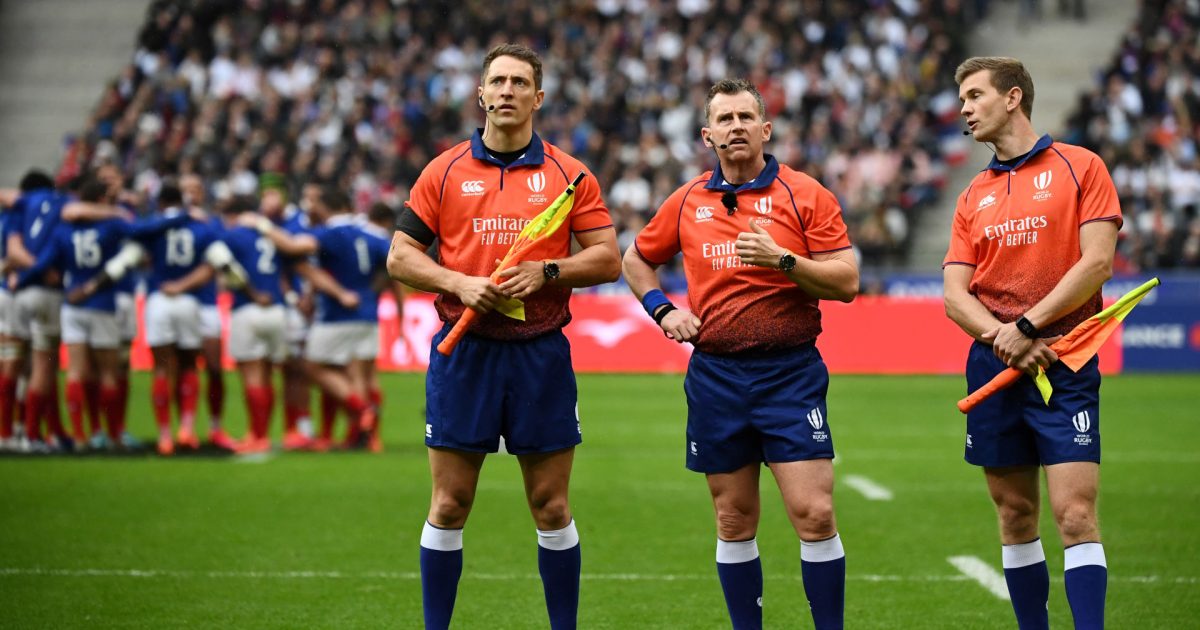Nigel Owens calls for overhaul of citing process after Muller case

Nigel Owens has criticised the inconsistency of the citing procedure, arguing that too many people are involved in the process.
His comments come after Brive’s Axel Muller received a five-week ban for a dangerous high tackle on Saracens winger Ben Harris in the Challenge Cup.
Much has been said about the sanctioning administered. The EPCR agreed the tackle warranted a ten-week suspension but decided to half it when taking into consideration Muller’s clear disciplinary record and his guilty plea.
When writing for Wales Online, Owens explained that the outcries which have followed the verdict only exacerbate a problem which has been brewing in the game for some time.
Red cards and the citing process are brought under the microscope frequently, but Owens is adamant that the fault doesn’t lie at the feet of referees, who he claims have been “pretty consistent across the board”.
Instead, he said it lies with the citing procedure and the bans handed out afterwards.
“There are too many people involved in the citing process and when you have that, opinions can vary,” Owens said. “And some have not been players or referees themselves at the highest level.”
The former referee has suggested that there should be a narrower field of citing commissioners to build a consistent interpretation of the laws which govern rugby.
Questions over a red card in Galway, but there's absolutely no doubt about this decision.
Axel Müller is immediately shown his marching orders.#ChallengeCupRugby pic.twitter.com/j1X1Ky91EW
— Rugby on TNT Sports (@rugbyontnt) April 8, 2022
“The more people you have citing across the world, the more it comes down to differing opinions,” he said.
One alternative which has been put forward is the introduction of a 20-minute red card, but Owens worries this would send out the wrong message to coaches and players.
“Why should the team that has played within the laws and not committed acts of foul play be punished? It [Muller’s tackle] was a needless act of thuggery, recklessness and foul play.”
He added that red cards are there to incentivise good on-field conduct, not ruin rugby. Because of this, he struggles to understand why an original ten-week ban for Muller was shortened.
“I just can’t fathom what is the point of having a ban of 10 weeks if you’re going to reduce it? Apologising or pleading guilty shouldn’t get a reduction.”
What frustrates Owens most about this is that there is not a clear throughline of what a red card is. He believes it should be exclusively for acts of “thuggery or recklessness”, not what he calls “accidents or rugby collisions”.
As a result, he does not think an unlucky mistimed tackle should warrant a red card. It should rather be based on what constitutes foul play and the reckless endangerment of a player’s safety.
“They [governing bodies] really need to look at everything – what is a red card, lengths of ban and citing procedures. All of those things need to be more clearly defined.”
































